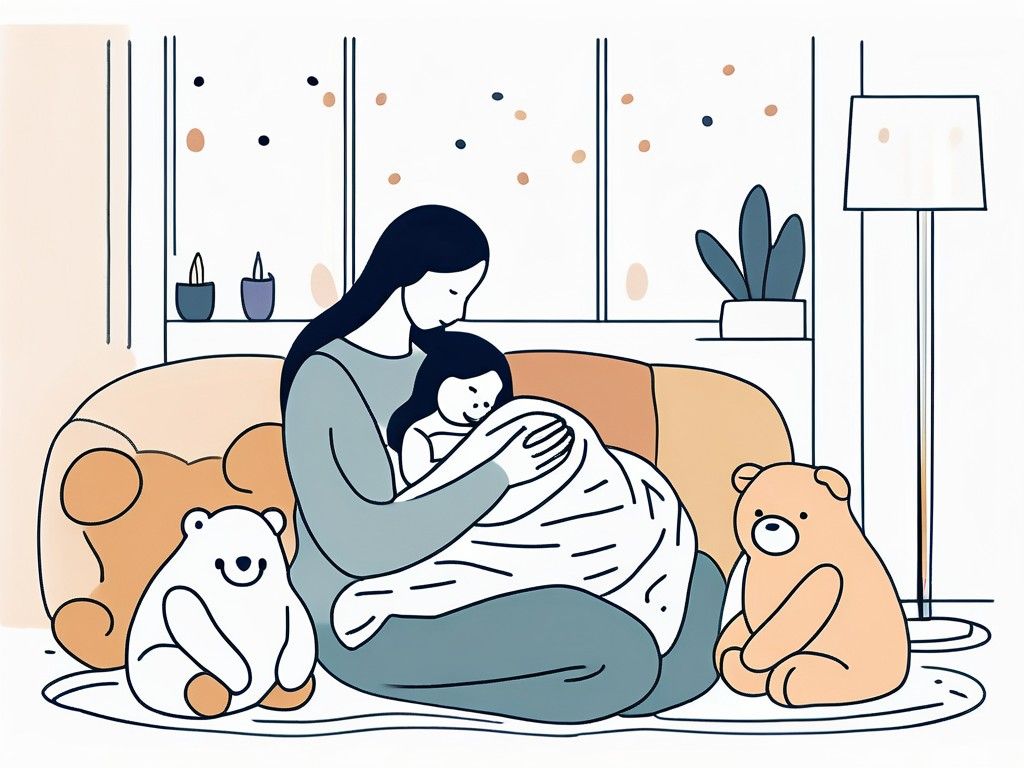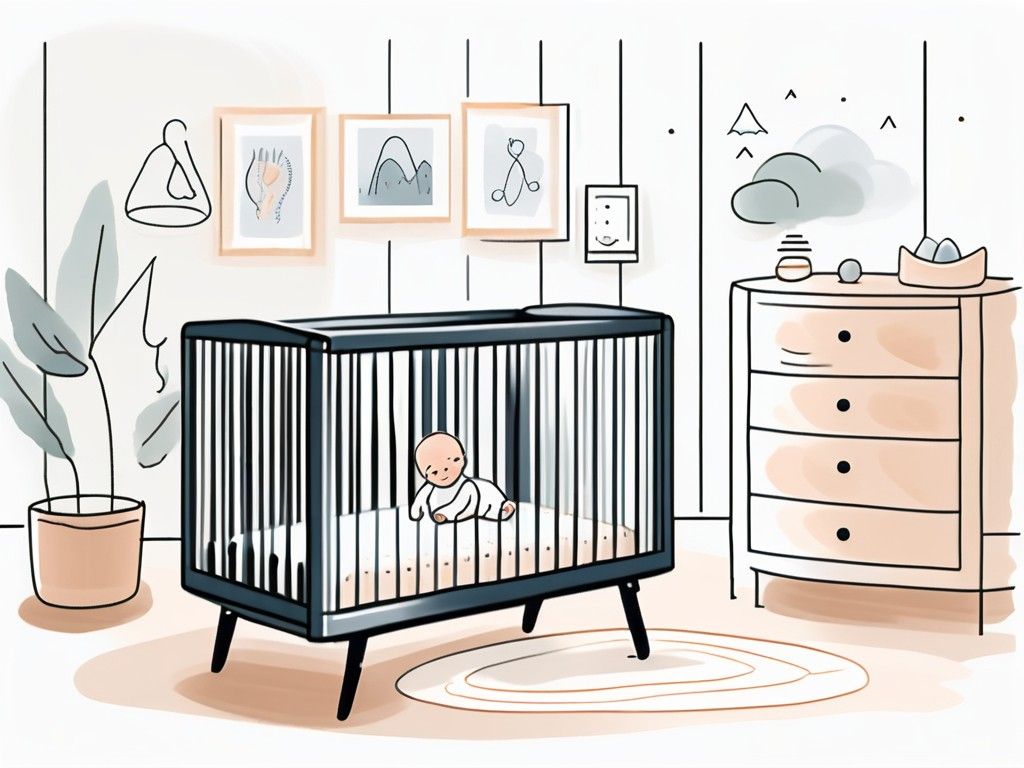Having a baby is one of the most joyous and transformative experiences in life. However, it also brings about significant changes that require careful consideration, particularly when it comes to having visitors. Timing is crucial for your physical recovery, emotional adjustment, and the overall well-being of both the new parents and the baby. Understanding these nuances can help new parents navigate the often challenging waters of postpartum life.
Understanding the Postpartum Period
The postpartum period, often referred to as the “fourth trimester,” encompasses the six weeks following childbirth. During this time, mothers undergo substantial physical and emotional changes as their bodies heal and adjust to the demands of caring for a newborn.
Physical Recovery After Childbirth
Physical recovery varies from one woman to another, but many experience postpartum symptoms that can affect their ability to host visitors. These symptoms can include soreness from delivery, fatigue, and hormonal fluctuations. The body is busy healing and adapting, which can take time. It is crucial to listen to your body and allow yourself to rest and recuperate.
Some mothers may also deal with complications such as cesarean recovery, significant tearing or lacerations, or postpartum hemorrhage, and their healing timelines can vary widely. In general, it’s wise to consider allowing at least two to four weeks before having visitors, especially if you had a challenging birth experience. During this time, it’s important to prioritize self-care; simple activities like gentle stretching, taking warm baths, and staying hydrated can significantly aid in recovery. Additionally, many mothers find that engaging in light exercises, as approved by their healthcare provider, can help improve their mood and energy levels.
Emotional Adjustments and Baby Blues
Along with physical recovery, new parents often face emotional adjustments. The early days with a newborn can lead to feelings of overwhelm, sadness, or anxiety. It’s common for new mothers to experience the “baby blues,” which generally peaks around the third to fifth day after delivery and can last for up to two weeks. Visitors may inadvertently add to this stress.
Having space during this period can allow parents to bond with their baby, find their rhythm, and address any mental health concerns. Delaying visits can provide essential time for emotional recovery and stability. Many mothers benefit from establishing a support system that includes not only their partners but also close friends or family who can offer practical help, such as meal preparation or household chores. This support can alleviate some of the pressures that come with new parenthood, allowing mothers to focus on their emotional well-being and the nurturing of their newborn. Furthermore, connecting with other new parents through support groups or online communities can provide invaluable reassurance and understanding during this transformative time.
Importance of Bonding Time with Your Newborn
Bonding with your newborn is vital and often requires undisturbed time for parents to get familiar with their baby’s needs. This process includes establishing daily routines and developing a secure attachment.

Establishing Feeding and Sleeping Routines
Every baby is unique, and establishing a feeding and sleeping routine that works for both the baby and the parents is key. New parents often experience a learning curve while figuring out when their baby is hungry or tired. This process can be disrupted by having visitors in the home.
Taking the first few weeks to prioritize these routines allows parents to feel more confident and secure in their ability to care for the newborn. When the time is right for visitors, parents will likely feel more prepared to manage social interactions on top of their new responsibilities. Additionally, consistent routines can help babies feel more secure, as they come to recognize patterns in their daily lives. This predictability can lead to improved sleep patterns and a more contented baby, which ultimately benefits the entire family.
The Role of Skin-to-Skin Contact
Skin-to-skin contact, also known as kangaroo care, is an important aspect of the early postpartum days. It fosters bonding and helps regulate the baby’s body temperature, heart rate, and stress levels. Limiting visitors can create a peaceful environment that maximizes these bonding opportunities.
Parents can use this time to engage solely with their baby, which provides emotional benefits for both. This intimate connection is fundamental to a baby’s emotional development and to the parent’s confidence in their new role. Furthermore, skin-to-skin contact has been shown to promote breastfeeding success, as it encourages the baby’s natural instincts to latch and feed. The warmth and closeness can also help soothe fussy babies, making it easier for parents to respond to their child’s needs promptly. As parents embrace this nurturing practice, they not only strengthen their bond but also lay the foundation for a trusting relationship that will grow as their child develops.
Health Considerations for the Baby
In the early weeks of life, a newborn’s health is fragile. Many new parents find themselves worried about exposing their baby to potential illnesses from visitors, highlighting the importance of caution during this period.

Newborn’s Immune System Development
A newborn’s immune system is still developing, making them particularly vulnerable to infections. Limiting visitors in the early stages allows the baby’s immune system to grow stronger without the added risks of exposure to germs from multiple people.
New parents should feel empowered to communicate their needs and concerns with friends and family, emphasizing the importance of protecting the baby’s health during this critical developmental period. It’s also crucial for parents to understand that even common colds can pose significant risks to a newborn. The delicate balance of their immune system means that what might be a minor inconvenience for an adult could lead to serious health issues for an infant. Therefore, parents should consider establishing a “no visit” policy for anyone who is feeling unwell, even if the symptoms seem mild.
Vaccination Schedule and Visitor Guidelines
It is also essential to consider the vaccination schedule of the newborn. Many pediatricians recommend limiting exposure to unvaccinated individuals, especially during the first few months when vaccination in the infant is still up to date.
Creating clear guidelines for who can visit and when can help alleviate concerns and ensure that new parents feel supported while prioritizing their baby’s health. Informing friends and family of the medical advice may assist them in understanding the need to exercise caution and respect boundaries. Additionally, parents might want to consider hosting virtual visits or outdoor meet-ups, where social distancing can be maintained, allowing loved ones to connect with the baby without compromising health. This approach not only keeps the baby safe but also helps family members feel included in the early bonding experience, which is vital for everyone involved.
Balancing the Need for Support and Privacy
While some new parents may feel the urge to have friends and family around for support, striking a balance between receiving help and maintaining privacy is crucial.

Accepting Help from Close Family and Friends
Family and friends can provide invaluable help during the postpartum period, whether it’s cooking, cleaning, or simply offering a listening ear. However, it is important to choose those you feel most comfortable with. Close family members may understand your need for space while still offering necessary support.
Accepting help doesn’t mean you have to engage with visitors. You can set up specific times for short visits or phone calls that won’t overwhelm you and your baby, ensuring your well-being remains a priority. Additionally, consider delegating tasks that feel manageable to you; for instance, asking a friend to run errands or pick up groceries can alleviate some of the stress without requiring extensive interaction. This way, you can benefit from their assistance while still maintaining a sense of control over your environment.
Setting Boundaries for Visitors
Establishing boundaries is crucial in maintaining a healthy postpartum experience. Be clear about visiting hours, the number of visitors allowed at once, and the length of visits. Firm boundaries ensure that parents can stick to their routines without feeling pressured.
Sharing these boundaries with family and friends can foster understanding and support, allowing for a more enjoyable interaction when the time is right for visitors. It can also be helpful to communicate your preferences ahead of time, perhaps even through a group message or a family meeting, to set the tone for what you need during this transitional period. This proactive approach not only helps manage expectations but also reinforces your autonomy as new parents, allowing you to focus on bonding with your baby without the added stress of unexpected interruptions.
Cultural Practices and Traditions
Different cultures have varying norms about postpartum care and visitor interactions. Understanding these can help new parents feel more at ease with their choices.
Confinement Period in Different Cultures
In many cultures, a period of confinement is practiced typically lasting for 30 to 40 days post-delivery. This tradition emphasizes rest, recovery, and bonding with the newborn. During this time, visitors may be limited, allowing families to focus on their health and emotional well-being.
Embracing cultural practices can provide a framework for new parents to prioritize their needs and the needs of their newborn while also feeling connected to their heritage.
Respecting and Navigating Cultural Expectations
While cultural expectations may suggest certain practices, individual families must determine what is beneficial for them. Communicating preferences respectfully with well-meaning family and friends can help navigate the complexity of cultural practices.
Ultimately, what matters most is the health and happiness of both the baby and the new parents, making it essential to find a balance between personal choice and cultural traditions.
In conclusion, deciding when to have visitors after having a baby is a personal choice influenced by physical recovery, emotional adjustment, health considerations, and cultural practices. Each family should feel empowered to determine their own timeline and approach, ensuring that their unique needs are met during this transformative period.











